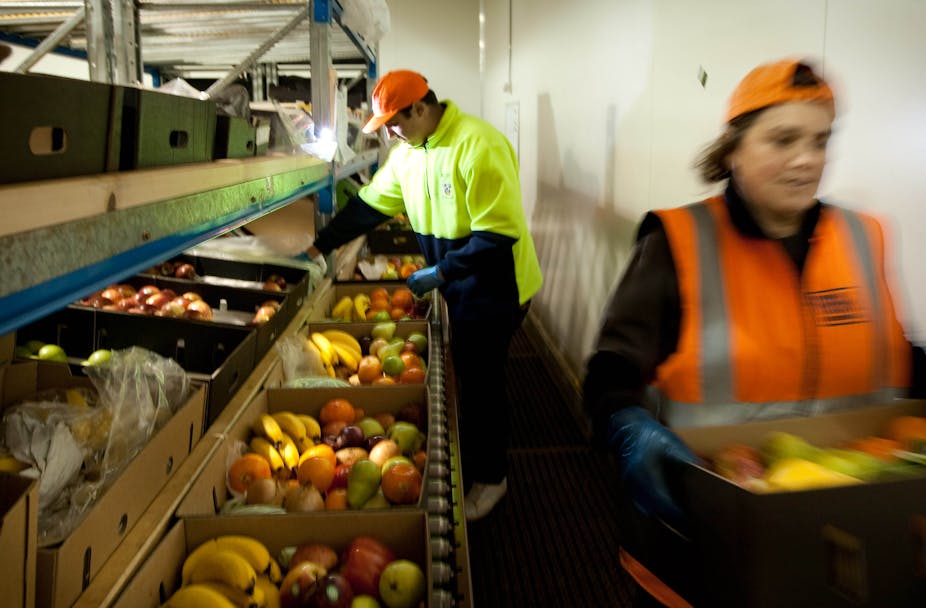Agriculture in Australia is at the crossroads. Not only must smallholder farmers contend with the adverse impacts of global climate change, a strong Australian dollar and greater deregulation in the market, but they must now face increasing competition domestically.
Within the last five years, Australian producers’ share of stomach has been rapidly declining. It’s not that there’s anything fundamentally wrong with the quality of the product, for Australia has some of the best food quality systems in the world, but rather, it’s the way in which product is delivered to end customers.
In modern institutional markets, which include the supermarkets, food processors and food manufacturers, buyers want quality, reliable delivery and a competitive price.
In this market, it’s important to understand that quality does not always mean best – it simply means fitness for purpose.
With all due respect to our friends in the burger business, its not prime eye fillet beef that’s being served between the buns. Those specialty cuts are reserved for the restaurant and retail trade.
Similarly, cosmetically attractive fruit is seldom a consideration in producing fruit juice, and in the wine industry it’s well known that the quality of fruit in the bottle is reflected by the retail price.
However, there is an implicit assumption that the food we eat is safe. Unfortunately, in the wake of numerous domestic and international food scares, this assumption has been challenged on many occasions.
So as to protect the integrity of their brand, most institutional buyers now require their suppliers to have third party-certified food quality assurance systems.
The key component of these systems is traceability, meaning that should there ever be a breakdown in the integrity of the food system, it’s possible to identify and isolate the source of contamination.
More importantly for the institutional buyers, it’s now possible to offload any responsibility for legal liability onto the producer.
Regrettably, for many of the smaller farmers, the costs of implementing and maintaining these systems are simply too expensive, thereby precluding them from participating in these markets.
Furthermore, for producers to hold onto these institutional markets there is often the need to make substantial investments in both production and postharvest facilities to maintain the continuity of supply.
As consumers today expect to be able to purchase the product all year round, institutional buyers will look towards those firms who have the capacity to deliver on all 365 days.
Acting independently, most small farmers simply do not have the capital resources to make these sorts of investments.
While cooperatives have offered a means for small farmers to enter the institutional market, for a number of reasons, most have failed leaving farmers very wary of such initiatives.
Potentially, the real concern here is that the power within our food supply systems is becoming concentrated in the hands of fewer and fewer players.
As farms become larger, they invariably become more dependent on resources, machinery and technology. Not only does this threaten to undermine the very fabric of rural society, but one could also argue that the larger farms are less sustainable.
Looking at the food processing sector, it comes as no surprise to find that the market is already dominated by global multinational companies including Nestle, Kraft, Unilever and Pepsico.
In the retail sector, while both Coles and Woolworths would argue that the competition between them is beneficial for consumers, the benefits for producers are less evident.
In order to offer consumers a lower price, the major retailers have to lower costs.
One of the many ways to do this is to reduce the numbers of items on the shelf (SKUs) and to transact with fewer and larger suppliers.
However, as trade barriers are constantly being eroded, there is a greater likelihood that Australian product will be substituted with lower cost imports.
No industry demonstrates this better than frozen vegetables and more so, frozen French fries, sourced predominantly from New Zealand.
There is no doubt that it is getting harder for small family-based farms to compete.
Without the economies of scale, it’s very hard to make the desired investments in production and with so little product it’s hard to maintain a presence in the market.
In 1985, Porter suggested two broad strategies for competition: low cost and differentiation.
Disappointed by the limited range of product and poor quality, consumers are cross-shopping today in greater numbers.
While shoppers continue to purchase dairy food, canned and frozen food predominantly from the supermarkets, more are returning to specialist retailers to purchase fresh fruit and vegetables, fish and meat and even bread.
For those consumers seeking specialty products, those produced under alternative production systems such as organic and biodynamic, or those seeking particular credence attributes such as halal, our major retailers are largely unable to respond.

